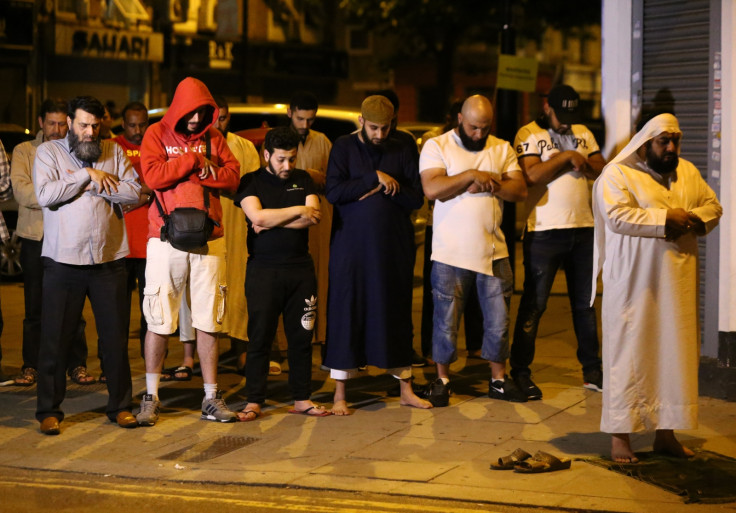Finsbury Park attack: We need to make political violence a taboo
In our language and attitudes, we can place it in the same moral category as child abuse or cannibalism.
Britain was for a long time seen overseas as a place of order and civility: a country where everyone said please and thank you, where people queued cheerfully, where the police went unarmed. Not just overseas, either. "The gentleness of the English civilization," said George Orwell, "is perhaps its most marked characteristic."
That's one of the things that make the Finsbury Park Mosque attack so horrifying. That this, of all nations, might enter into a spiral of copycat terrorist attacks is almost unbearable.
One of the reasons that violence has tended to decline over time, as Steven Pinker showed in his magnum opus, The Better Angels of our Nature, is that taboos grow up around certain kinds of behaviour. Duelling, lynching, hitting children – these things became rare, not because there were new laws against them, but because they became more unthinkable with each passing day of non-use.
It should go without saying that using a vehicle to mow down innocent bystanders is taboo behaviour. Until a few months ago, that sentence wouldn't have needed writing. Even the most murderous terrorist organisations of the second half of the twentieth century – ETA, the IRA, the PLO, the Red Brigades – tried, or at least had to pretend to try, to be more selective in their targets.
Islamic State is different. The modern Kharijites delight in breaking our deepest-held taboos: murdering aid workers, shooting children, torturing hostages, pulverising antiquities. They deliberately refuse to acknowledge the boundaries of traditional morality. They want to show the world that they consider nothing off-limits.
Isis has for some time been encouraging its adherents in the West to use vehicles as murder weapons. Almost anyone is capable of accelerating a car into soft targets. No training is required, no equipment, no organisation. The two attacks on London's bridges followed similar atrocities in France, Germany and Sweden. While we don't yet know the details behind this latest abomination, the method seems deliberately to mimic those Islamist attacks.
Thus the taboo weakens. The next potential murderer picks up the idea that he will be part of a trend, that driving into a crowd is no longer completely unthinkable. That mental shift is the key that can turn a disturbed loner into a terrorist. He (they are almost always men) needs to feel that he is not abnormal, that his sociopathic tendencies are in fact a kind of righteous anger, that his aggression is justified, even noble, when deployed in an apt cause.
How can we safeguard ourselves? Obviously we must do our best to infiltrate extremist cells, to keep tabs on people showing signs of radicalisation, to protect obvious targets. The evidence is that we are doing precisely that: the Metropolitan Police say they have foiled 18 attacks over the past four years. But no one can defend every crowded street from car attacks: it is logistically impossible.
What, then, can we do? Well, for one thing, we can strengthen the taboo. We can seek, in our language and attitudes, to place political violence in the same moral category as, say, child abuse or cannibalism.

That may sound trite, but ask yourself whether we truly see political violence as always and everywhere unacceptable. When, for example, speakers are unable to address universities for fear of student mobs, we weaken the taboo. When protesters are acquitted after vandalising the property of companies they dislike, or throwing paint over unpopular politicians, we weaken the taboo. When demonstrators break into Kensington and Chelsea's council offices intent on violence, and are reported on the TV news as people acting legitimately, we weaken the taboo.
The justification for all these acts of aggression, from those who excuse them, is that they are a form of protest by the less powerful against the more powerful. As the saying goes, it is OK to punch up, but not to punch down – "punch", for once, being the operative word. Here, for example, is the cult Leftist philosopher Slavoj Žižek:
"The standard liberal motto — that violence is never legitimate, even though it may sometimes be necessary to resort to it — is insufficient. From a radical emancipatory perspective, this formula should be reversed: for the oppressed, violence is always legitimate (since their very status is the result of the violence they are exposed to), but never necessary (it will always be a matter of strategy whether or not use violence against the enemy)."
Obviously, there is a distance between, say, attacking the professor who had invited Charles Murray to your campus, and sectarian murder. But the distance is one of degree, not category. Either it is acceptable to use physical coercion against people of whom you disapprove ideologically or it isn't. If force is unacceptable, then the rich have the same right to protection as the poor, ministers the same right as classroom assistants, the EDL as the Liberal Democrats.
If, on the other hand, force is sometimes acceptable, then everything becomes a question of degree. Morally, "Punch a Nazi" is in the same category as "Shoot a Republican Congressman". Driving Nigel Farage into a pub for protection is in the same category as driving into a crowd. It is all, as Slavoj Žižek says, "a matter of strategy".
Daniel Hannan has been Conservative MEP for the South East of England since 1999, and is Secretary-General of the Alliance of European Conservatives and Reformists. Follow : @danieljhannan
© Copyright IBTimes 2025. All rights reserved.






















